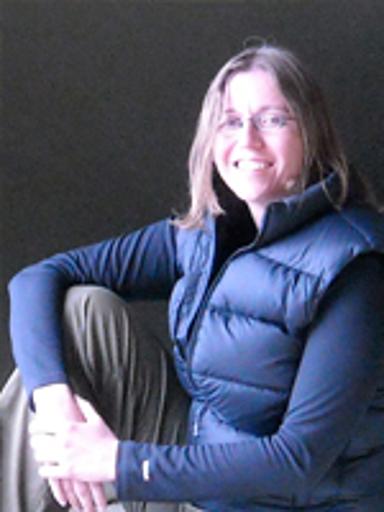
Ann-Louise Davidson, PhD
- Director, Innovation Lab
- Strategic Advisor, Innovation, Faculty of Arts and Science
- Professor, Education
Are you the profile owner?
Sign in to editContact information
Website:
Biography
Education
Postdoctoral fellowship, Carleton University (funded by SSHRC), June 2008
PhD Psychopédagogie, Ottawa University (funded by SSHRC), June 2007
MA Education Administration and Foundations, August 2003
BEd Ottawa University, April 1996
BA Littérature française et arts visuels, April 1995
Professional experience
Assistant professor –Educational Technology Program, Department of Education, Concordia University
Graduate Program Director –Educational Technology Programs, Department of Education, Concordia University
Lecturer –Department of Sociology and Anthropology, Faculty of Social Sciences, Carleton University
Lecturer –Women Studies, Faculty of Social Sciences, University of Ottawa
Lecturer –Faculty of Education, University of Ottawa
Social Analysis Systems certified instructor.
Courses taught
Fundamentals of Instructional Design (ETEC 650)
Fundamental Methods of Inquiry (ETEC 548/648)
Human Performance Technology (ETEC 512/712)
Educational Computing (ETEC 560/660)
Social Computing (ETEC 560/562)
Selected publications
Selection of articles published in peer reviewed scientific journals
Naffi, N., Charest, M., Davis, S., Pique, L., Davidson, A.-L., Brault, N.,Bernard, M.-C., Barma, S. (2023). Youth Construals of Deepfakes andMisinformation. Journal of Constructivist Psychology. https://www.tandfonline.com/doi/full/10.1080/10720537.2023.2294314
Naffi,N., Davidson, A.-L., Winer, L., Beatty, B., Focarile, T., Rukavina, D.,Germain-Rutherford, A., Hornsby, D., Strickland-Davis, S., Boujaoude, S., Côté,S., Raîche-Savoie, G., Racine, J.-F., Camara, L., Duponsel, N., Krofp, V. (2023).Movingforward after COVID-19: New directions for teaching in higher education. IJTHE,20(2), 68-85. https://ijthe.org/files/numeros/119/ritpu-v20n2-07.pdf
Davidson,A.-L., Harlap, A., Bhuiyan, N. (2022). A Living LabApproach to Prepare Students to be Confident Innovators. Papers in PoliticalEconomy, 68. https://journals.openedition.org/interventionseconomiques/19045
Parent, S., Michaud, O., Davidson,A.-L., Sanabria, J., Artemova, I. (2022). Portrait de quatre espaces créatifs au Québec :analyse à partir de la théorie de l'activité. RevueInternationale du CRIRES : Innover dans la tradition de Vygotsky, 6(3),66-85.
Naffi, N., Davidson, A.-L., Brault, N., Barma,S., Bernard, M.-C., Viau-Guay, A., Berger, F. (2021). Éduqueraux deepfakes ou hypertrucages malveillants : Un nouveaudéfi du développement de la citoyenneté numérique. Éducation et francophonie,49-2. https://www.erudit.org/fr/revues/ef/2021-v49-n2-ef06680/1085307ar/
Sanabria, J., Davidson, A.-L., Romero, M., Quintana,T. (2020). Macro-diseminaciónde la Cultura Maker: competencias del siglo XXI en un Ideatón. Revista de Educacióna Distancia, 62(20), pp. 1-27. https://doi.org/10.6018/red.398381.
Davidson, A.-L., Naffi, N., Raby, C.(2020). Un approccio PCP alla risoluzione dei conflitti nelle comunità diapprendimento. Rivista Italiana di Costruttivismo, 8(1), pp.30-42. Complete paper online: http://www.rivistacostruttivismo.it/wp-content/uploads/2020/04/RIC_8_1_Davidson-Naffi-Raby.pdf
Davidson,A.-L., Naffi, N.(2019). Faire face à un futur incertain à travers les activités “maker”. Spectre, 47(1), novembre 2019, p.11-15.Complete paper online : https://en.calameo.com/aestq/read/0051814835fffd5b55f32
Naffi, N., Davidson, A.-L.(2019). Coinvolgere i giovani dellecomunità ospitanti per comprendere come costruiscono l’influenza dei socialmedia sul ricollocamento dei profughi siriani. Rivista Italiana di Costruttivismo, 7(2), pp.42-56. http://www.rivistacostruttivismo.it/wp-content/uploads/2019/10/RIC-7_2_Naffi-Davidson.pdf
Selection of authored book chapters with reviewing committee
Davidson, A.-L., Charbonneau, O. (accepted). Comment entrevoir l’enseignementuniversitaire à l’ère de l’IA générative. In Stéphane Allaire, Descheneaux, F.Université du futur.
Davidson, A.-L., Louis, N., Naffi, N. (accepted). Développer l’innovation et lacréativité à travers le numérique. Faire face à l’avenir? In. S. Colin& Michelot, F. La compétence numérique en contexte éducatif. Regardscroisés et perspectives internationales.
Naffi, N., Davidson, A.-L.(2020). A Group of Youth Learn Why and How toDisrupt Online Discourses and Social Media Propaganda Around Syrian Refugees. In. A. Naseemand Arshad-Ayaz, A (Eds). Peace 2.0: Social Media as Space for Peace Education,pp.15-40. Palgrave Macmillan
Davidson. A.-L., *Naffi, N. (2018).Facilitating Problem-Based Learning: A Reflective Analysis. In. Jean-LucRinaudo (Dir.). Telepresence in Training,Chapter 3, pp. 53-75. London: ISTE Editions.

